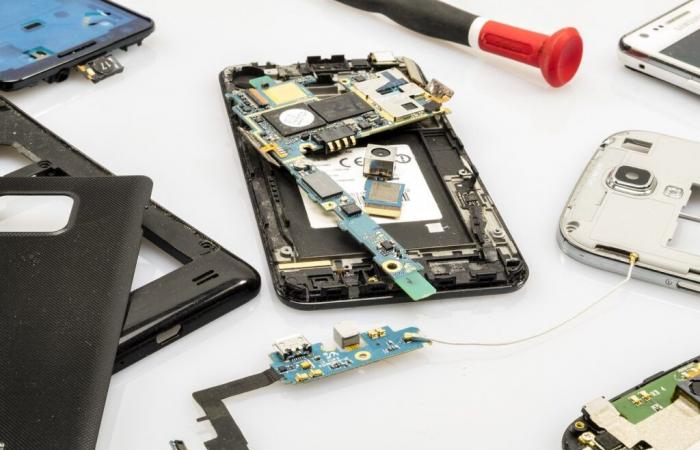A third of Quebecers would be open to the idea of spending a week without using technological devices, reveals a new survey published by the Academy of Digital Transformation (ATN). But for the vast majority of people here, combining digital life and electronic devices is difficult, even unthinkable.
Is it really a disdain for the environment, a certain laziness, or a lack of information about alternatives? Whatever the case, trendy Quebecers stick to the behavior of the majority; Only one in four people consider repairing an electronic device in the event of a breakdown or malfunction, the survey reveals.
In the same perspective, nearly 75% of respondents indicated that they prefer to buy new, when it comes to electronic devices, than second-hand phones, computers and other gadgets.
This trend is consistent across all device types examined, and also extends to televisions and video game consoles.
The perspective changes a little for people who are still studying: one in three people will then favor remanufactured or refurbished devices.
Unsurprisingly, it is the question of price which justifies this recourse to the used.
And given the almost constant surge of new models, year after year, 57% of adults mentioned that they replaced their smartphone before it stopped working. In general, however, this phone is used for a little more than four years before heading to the Ecocenter, the trash can, or even the bottom of a drawer.
A bottom drawer, yes, because a quarter of Quebec Internet users questioned as part of the survey admitted to keeping non-functional electronic devices at home. And 17% of respondents do the same, but with devices and gadgets that still work.
-In the opinion of Jonathan Deschênes, professor at HEC Montréal and specialist in responsible consumption and circular economy, this type of behavior is impossible to maintain in the long term.
“Our current level of global production and consumption cannot be maintained in the long term,” he says.
“The situation is alarming and generates worry and even eco-anxiety. However, consumer behavior does not necessarily reflect this worrying reality. In academia, the terms “green gap” or “value-action gap” (gap between values and actions) are often used to describe the difference between the attitude towards the adoption of responsible behavior and the actual actions of individuals. »
Professor Deschênes also denounces what he describes as “accelerated obsolescence” of electronic products, a strategy used by manufacturers to ensure that they sell ever more devices. “As soon as electronic products are acquired, their days are numbered,” he laments.
A little hope
All is not lost, precisely, when it comes to electronic devices. The ATN survey reveals that 58% of respondents offer a second life to gadgets that are still functional, particularly in the form of a gift to a loved one (28%).
Just over half of participants (54%) will also choose to bring devices that no longer work to dedicated drop-off points.
In the opinion of Dominique Levesque, general director of the Association for the Recycling of Electronic Products of Quebec, this proportion is still too low. According to her, devices that are forgotten in a drawer at home “represent a wealth of recoverable materials and non-renewable resources”.






